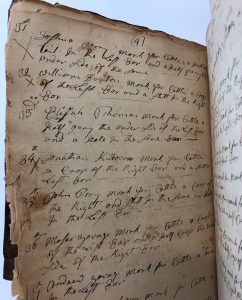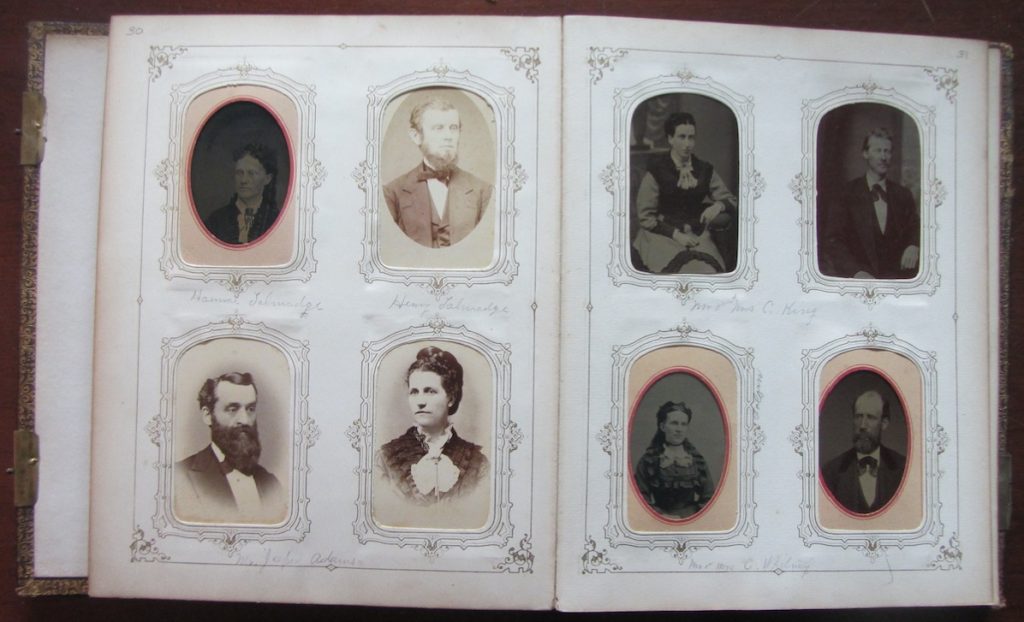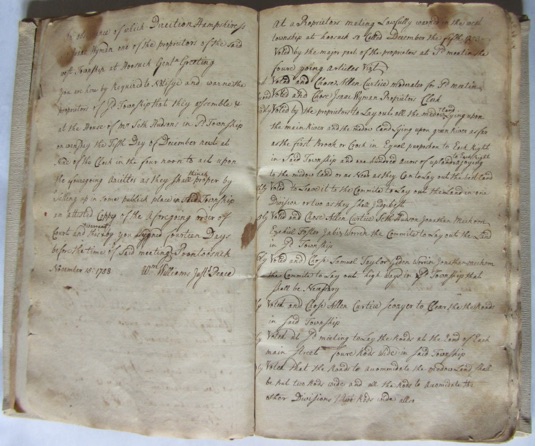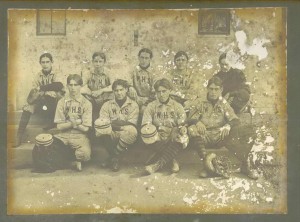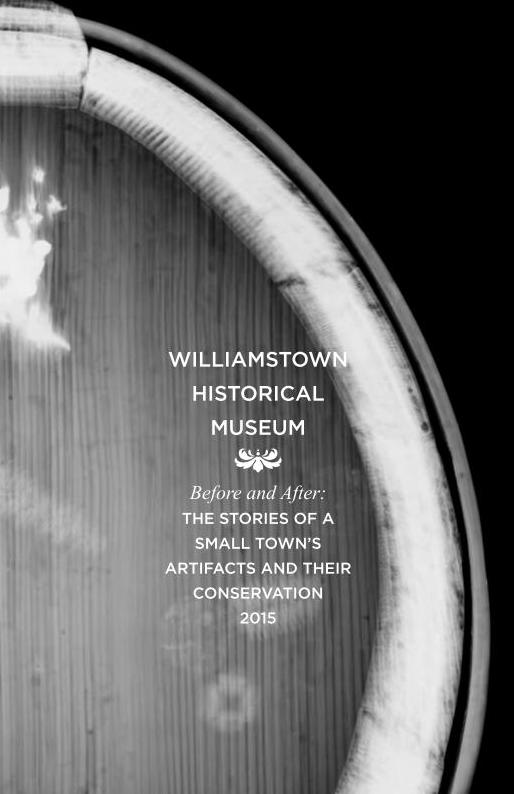Audio Recording of Williamstown the First 250 Years
Are you skilled at reading aloud? Perhaps you can help us…
In the spring of 2018, the WHM was awarded a grant from the Fund for Williamstown, a fund of the Berkshire Taconic Community Foundation, to support the Williamstown History Accesibility Project and the purchase of recording equipment to create an audio book version of Williamstown’s history book, Williamstown the First 250 Years and to create an audio tour recording of the captions from the permanent orientation exhibit at the WHM.
The Williamstown History Accessibility Project and its resultant audio book and audio tour will enhance the local history resources available to community members who seek to learn more about our town’s past. The Value of History Statement presented by History Relevance states that, “History, saved and preserved, is the foundation for future generations. History is crucial to preserving democracy for the future by explaining our shared past…History lays the groundwork for strong, resilient communities…” This statement underscores the importance of our project which will provide opportunities for all residents to connect with and understand the past and can encourage residents to analyze our ideas and experiences through a broader context, thus making Williamstown a stronger and better community in which to live.
Once the audio book is recorded, the goal is to upload it to multiple online platforms and to provide the audiobook to all listeners for free. The audio tour of the WHM exhibit will be uploaded to the WHM website. Your help in recording would be a great way to give back to your community. Contact the WHM today to learn more: 413-458-2160 or [email protected].
18th Century Animal Markings Ledger
After a remarkable 18th century ledger containing notations of markings used to identify town residents’ livestock was found within the vault at the Municipal Building (Town Hall) the Williamstown Historical Museum facilitated its conservation at the Williamstown Art Conservation Center with funds from the Community Preservation Fund, and a vote of support by residents at the 2019 town meeting. This fascinating artifact demonstrates the importance of agriculture during the town’s first twenty years. Settled in 1753, and called West Hoosuck by its earliest residents, Williamstown’s economy was focused on agriculture in the 1770s. By the time the ledger of animal markings was started, the town had renamed itself Williamstown, had an organized set of town committees, and active citizens had helped the community grow. The animal markings ledger records the marks, such as a “halfpenny marking on the left ear,” of local livestock; primarily consisting of cows and sheep. The ledger also records dates and names of the owners so that animals could be traced if lost or if disputes over ownership of animals occurred. This ledger can help us understand how important agriculture was during the early life of Williamstown, and can also help us identify which animals were frequently raised in town. In the spring of 2020 the Williamstown Historical Museum will mount an exhibit that will detail the ledger, its meaning, and its conservation. We encourage you to visit to learn more about this beautiful artifact and the history of Williamstown!
Textiles of Williamstown: Selections from the WHM Collection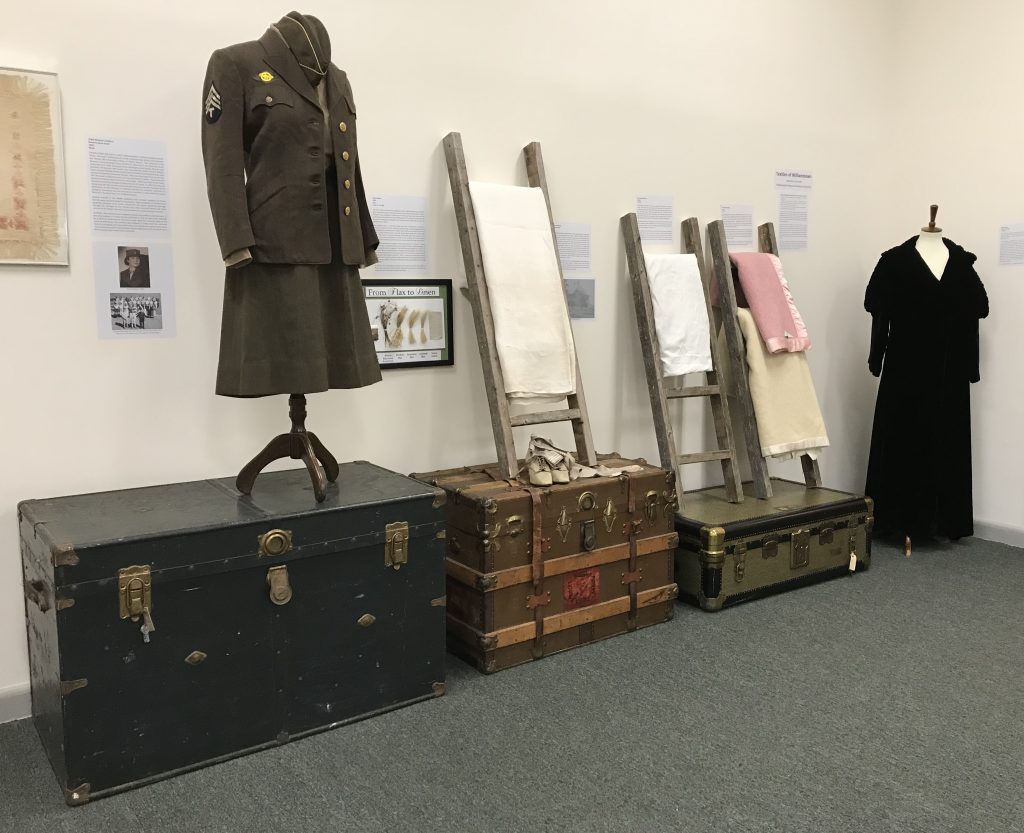 Textiles conserved at the Williamstown Art Conservation Center with CPA Funds, 2018
Textiles conserved at the Williamstown Art Conservation Center with CPA Funds, 2018
1875 Southworth Album of Photographic Portraiture
2016 – 2017 Conservation and Digitization
The exquisite Southworth Golden Wedding Anniversary Album is striking object. Compiled in 1875 to honor Emily and Sumner Southworth’s 50th wedding anniversary, the album contains both cabinet cards and cartes de visite (calling cards) featuring portraits of the Southworth social circle – friends, relatives – chiefly Williamstown residents. As was then the custom, the photos were most likely left by the guests upon their arrival at the anniversary party, as gifts commemorating the event. The album provides valuable photographic evidence of the fashion and personal grooming trends of the late 1800s. And, more importantly, it offers a virtual pictorial Who’s Who, a Williamstown Social Register, of 1875. We have been given a unique and remarkable window with which to visually taste the flavor of our community in the last quarter of the 19th century. The anniversary party took place well before the age of the snapshot which, on an important occasion like this one, would have captured guests in action. Yet, these portraits provide us with the best possible visual record of Southworth’s party guests.
With support from Williamstown’s CPA fund, and a vote of support by town residents at the 2017 Williamstown Town Meeting, the WHM was able to carry out a major conservation project on this album. The Williamstown Art Conservation Center has conserved the album and Chicago Albumen Works, located in Housatonic, MA, has digitized the album so that each image can be accessed online. We hope you will contribute to the ongoing research related to the album and the residents within. To learn more about this project contact Sarah at [email protected].
Williamstown’s Proprietor’s Book
2015 Conservation and Digitization
Another inspiring conservation project supported of the Town of Williamstown through Community Preservation Act Funds was voted on at the 2015 Annual Town Meeting. This book is of unquestionable historic value to the town and to the larger scholarly community. Documents from this period in Williamstown’s history are exceedingly rare since almost all were destroyed in a meeting-house fire in 1866 while others were destroyed in a fire on Spring Street where many documents were housed in the late 1800s. CPA funds supported the conservation of the book at the Williamstown Art Conservation Center and the production of a facsimile containing highly detailed, research quality, copies of each page by Chicago Albumen Works located in Housatonic, MA. This three volume facsimile is well worth a peek and we encourage you to view it in the Town Clerk’s office at the Municipal Building. In addition to the facsimile, a digital copy was produced and the Williamstown Historical Museum keeps a dedicated hard-drive of the entire Proprietors Book at the museum. With funding from the Fund for Williamstown, a fund of the Berkshire Taconic Community Foundation, we were able to purchase updated computers with more memory. We will soon work on uploading images from the Proprietors Book onto our online collection.
Important Collection Pieces
2014 -2015 Conservation
1904 Williamstown High School Baseball Team
At the Annual Town meeting in June of 2014, the town voted to provide the Williamstown Historical Museum with funding, through the Community Preservation Act Fund, for the conservation and exhibition of several important artifacts from the museum. The items conserved for the WHM at the Williamstown Art Conservation Center include a number of photos that demonstrate the unique character of Williamstown. In addition to historic photos, three ledgers from the Hopkins Funeral Home and Furniture store dating from 1903 through 1915 were conserved, along with a mid 19th century tilt-top tea table, and a wooden canteen that dates from the latter part of the 1700’s (Revolutionary War period).
Thank you to Pine Cobble for helping us to tell the story of Williamstown!
2015 – 2016 Exhibition and Booklet Production
In 2015, seventh graders from Pine Cobble School in Williamstown observed and researched the objects we conserved in 2014. Students investigated the artifacts and their meaning within American and local history. The students’ work was included in an exhibit featuring the conserved objects. Additionally, the students’ work was included in a booklet about the conserved objects and has been distributed throughout the community allowing residents and history enthusiasts to learn more about this corner of the state. Support for the booklet was provided by the Fund for Williamstown, a fund of the Berkshire Taconic Community Foundation. Beth Carlisle expertly designed the booklet.
For more information call or email Sarah at 413.464.6335 or [email protected].

